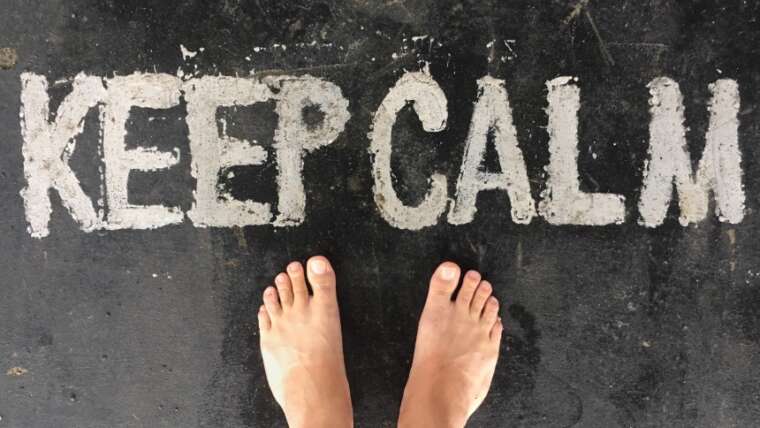
Despair and hope – statistics about how COVID-19 has affected Japanese shukatsu (fresh graduate job-hunting)
Written for and also published on Why Japan?
Less than a year ago, in the heat of COVID-19 soft lockdown I wrote this article about how to job-hunt amidst the worst of COVID-19 enduced economic chaos. The advice still stands and the techniques stated in the article and other articles are still relevant.
With around one year since the pandemic started, something very important has now changed – statistics. Over the last months of 2020, there have been multiple reports from various HR sources which have come out about the impact of COVID-19 on job-hunting. This article aims to pull relevant information to paint a more concrete picture about not only how much COVID-19 has affected recruitment, but also where in particular has been affected.
If you want to be spoiled, the data clearly underlines that the environment for those job-hunting (or job-switching) in 2020/2021 (and possibly 2022) has worsened compared to that for job-hunters in the preceding few years. On the other hand there is hope that recruitment is still not as bad as other markets in the world, and even compared to previous economic crises.
But anyway, let’s look at the data.
It’s bad

Let’s get the bad news out of the way first. Looking at a few parts of statistics.
Unemployment rate
The official unemployment rate from Japan’s statistics bureau shows that the average unemployment rate for 2020 was around 2.8% – very low internationally but still an increase from 2.4% in 2019.
Open jobs per job-seeker
Statistics from the Ministry of Health, Labor and Welfare (厚労省) in Japan have noted that the ratio of open jobs per job seeker as of December 2020 was 1.06. This is a fall of around one third from the same number in December 2019 when it was around 1.55.
Aside from companies closing and slowing hiring, more people seeking jobs due to being out of work is probably the other part of the equation.
Companies cutting fresh-graduate hiring
Diamond Online also reports that near 30% of Japanese companies are planning to reduce fresh-graduate hiring. This is the first time in 10 years that the percentage of companies planning to cut fresh-graduate hiring passed the percentage of companies planning to increase fresh-graduate hiring.
People-facing industries particularly affected

Some industries have definitely been more affected by this situation than others. Doda provides per-industry results for the number of open positions per job seeker. As of January 2021, the industries facing the largest decreases as compared to January 2020 are below.
By industry:
- Retail / Food and Beverage: 1.09 to 0.59 (-46%)
- Media: 1.88 to 1.00 (-47%)
- Manufacturing: 1.97 to 1.25 (-37%)
- Service: 2.86 to 2.08 (-29%)
Per job-type statistics show around an across-the-board 30% decrease in hiring for most fields, though hiring for IT and medical technicians is more sheltered (no surprise). On the other hand, hiring for service and retail staff as well as administrative roles have been hit hard.
Foreigners especially affected
I also have to add on top to that the statistics above are for the general Japanese job market. The situation and hiring slumps however have been the most felt by many industries which have traditionally hired foreigners.
Among these of course include tourism and linked foreigner-facing service fields. But also some other functions such as trade, overseas expansion have also been negatively affected due to the negative COVID-19 effects not to Japan, but to external countries.
But maybe it’s not that bad

The statistics above may already give you a clue as to how recruitment in Japan may not be as bad as as it seems. After all, the very fact that the ratio of open jobs to job-seekers being 1.03 means that at the very least, for each job-seeker there is around 1 open job in the market. Let’s look at some more relevant statistics.
Percentage of students graduating with job offer
One of the clearest ways to measure how bad the recruitment slump is to see how many students actually are graduating with job offers – a measure which can be very telling especially given how Japanese students finish their job-hunting before graduating.
So what are the numbers that we see?
Recruit reports that as of December 2020, 93.4% of bachelors students in Japan have already secured one job offer. For graduate students, the percentage rises to 97.6%. In addition, of the bachelors students, at least 60% have secured at least 2 job offers.
Therefore, for the graduating batch of 2021, Japan is therefore not expected to see a large wave of unemployed university graduates.
Number of fresh graduate job posts
I mentioned that around 30% of Japanese companies are planning to slash fresh-graduate hiring.
The flip side of the equation is as stated in the same report is that the majority of Japanese companies are planning to keep fresh graduate employment numbers constant. There is even a small minority of Japanese companies (around 10%) which are planning to increase fresh-graduate employment.
Nonetheless, we’re looking a list of 120,000 job posts, a 15% cut from 2019 recruitment numbers. But at least for me, 15% does not actually look too bad for how bad the disruption COVID-19 has caused.
But how much does this really translate in terms of open job opportunities for each fresh graduate? This brings us to…
Ratio of job offers to job-seeker for fresh graduates
Aside from the 1.03 mentioned earlier, let’s look at the numbers specific for fresh-graduates.
In the Diamond Online report cited above, there are also reports about the ratio of open fresh-graduate jobs vs. fresh graduate job seekers. The result is 1.53 or in other words, for every 10 students that will graduate in 2021, there were 15 open jobs in the market.
In other words, there is still a shortage of fresh graduates, and by extension early career talent, sheltering these segments from the worst of the COVID-19 shock.
Previous economic crises have been worse

From an employment perspective, the COVID-19 crisis has also been nowhere as bad compared to previous crises. There have been two big employment slumps or “employment glacial periods” (就職氷河期) in recent times, one around 2000 and one after the Lehman shock in 2009.
Remember that the 2020 statistic point to there being around 1 open job for 1 job-seeker. Immediately after the global financial crisis, this number reached its lowest recorded number at 0.45, ie. for every 10 job-seekers, there were only 4 or 5 open jobs. In this sense, the ratio now is twice as high as how it was 10 years ago.
For the fresh-graduates, the worst occured for the batch graduating in 2000, where the ratio for fresh graduate job posts was 0.99 – compared to the 1.53 right now. Even the numbers for the batches affected by the aftermath of the global financial crisis (grad’ between 2011 – 2014) the numbers were between 1.20 and 1.25.
What can we say from this?

What I want to say is that Japan’s employment situation, especially for early-career and fresh-graduates is very sheltered compared to many other countries.
Or in other words, yes things are bad in Japan. But if things are bad, job-hunting overseas for most countries will probably be worse.
Why is Japan more sheltered? My own hypothesis is that the biting labor shortage in Japan, coupled with how fresh graduates do not compete with experienced talent means that fresh graduates are not facing the worst of COVID-19 employment shocks.
This is also to say that for many foreign students, Japan may strangely be the easiest choice of a place to work after graduation. As I often say do not be overconfident, but hopefully this gives some people some much-needed hope for their job-hunting prospects.

3 Comments
by pieru
Hi Austin,
I am discovering your blog and it’s very interesting and informative, thank you for all the info you provide to us.
I’m very interested in getting your opinion on my profile as I’m in a situation that you don’t really describe.
So to make it brief, I graduated from a top French Business School (did an exchange at Keio, graduate school of commerce), speak 4 languages but I’m still working on my Japanese and will take the JLPT N2 in July. I have confidence I can pass.
I had 3 x 6 months work experience at large multinational firms HQs. These internships are like real jobs (handled projects, did presentations in meetings to world VPs etc. this is very different from Japan I have been told).
Do you think my profile is sellable in Japan?
Any thought from your experience would be very helpful !
Thanks a lot,
pieru
by AustZ
Hey there Pierre – with your profile you should have no issue getting a job in Japan because your credentials are solid (particularly if you have an N2). To be honest Business School in itself is not that important in Japan, but the number of French natives (plus native level English) who have some Japanese capability is rather low. If you have an N2 you’d be a very strong candidate.
The bigger question for me though is whether you’d find a job that you’d be satisfied with because I get the feeling that it would be a waste if you just entered your career as a typical fresh graduate in the Japanese system (though you could argue that this is a worthy sacrifice). What are your goals or direction in your job hunting if you are job hunting for Japan?
by pieru
Hey there Austin,
Thank you for taking the time to reply!
Your response is very reassuring. As I figured, the N2 is a big key to the whole thing.
I agree with you that a completely freshman typical Japanese job would probably not make me the happiest, but if it’s a way to set a foot inside first, I take it.
My main goal/objective would be to land a job at a gaishikei ideally. I know it doesn’t 100% guarantee a better work/life balance but the odds are higher and the general culture would be more open-minded. But ultimately, my goal more broadly is to land a job in the same type as what I did in France (business/sales analyst) and keep polishing my business Japanese at the same time. If you have more advice on this, that would be very nice?
A last question for you which is very important: granted I get the N2 in July, do you think it’s perfectly possible to secure a job from outside of Japan ? If so, just through the Japanese job portals?
Thank you again!
Pierre